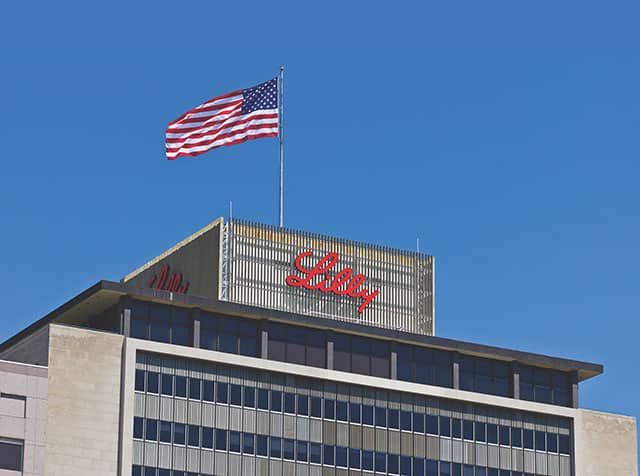
2021 may go down in history as the year when everything changed in Alzheimer’s disease.
Following the approval of Biogen’s Aduhelm (aducanumab) in June, Eli Lilly has created a new business unit, Lilly Neuroscience, to shepherd the company’s portfolio in pain and neurodegeneration.
This includes the company’s potential drug for Alzheimer’s disease, donanemab, which received breakthrough therapy designation in June based on its phase 2 data.
Bio-Medicines will actually split in two: Lilly Neuroscience will be overseen by Anne White, who has guided Lilly Oncology for several years, and Lilly Immunology will be led by current Lilly Bio-Medicines head, Patrik Jonsson.
Jacob (Jake) Van Naarden, currently chief executive officer of Loxo Oncology, will bring together and lead Loxo and Lilly Oncology, and join Lilly’s executive committee.
Although Alzheimer’s disease is the sixth leading cause of death in the US, until now there were no therapies that treated the course of the disease. Biogen’s Aduhelm and Lilly’s donanemab are the first new drugs for more than two decades in the therapy area, but they are not without controversy.
Both are monoclonal antibodies that have been shown to break down the amyloid plaque that is thought by the majority of researchers to worsen Alzheimer’s disease, but the evidence around resulting cognitive improvement is less clear. The FDA courted controversy when it approved Aduhelm earlier this year after its own advisory board rejected the surrogate endpoint.
The controversy did not end there, with some experts describing the label – which includes all Alzheimer’s patients regardless of severity, or six million people in the US alone – as “shockingly broad” by Bernstein analysts. The price tag of $56,000 per patient per year also raised eyebrows as it was significantly higher than expected.
All in all, analysts estimate Aduhelm revenues could reach $10bn a year, making it potentially one of the most lucrative drugs of all time.
Lilly’s donanemab is not far behind the frontrunner, with the company announcing its intention to submit a biologics licence application under the accelerated approval pathway later this year.
In late July, Lilly released data demonstrating the relationship between the reduction of amyloid plaque and the slowing of cognitive decline with the use of donanemab.
At the time, Mark Mintun from Lilly pain and neurodegeneration, said: “We are excited by these promising results, which provide further evidence on the potential for donanemab to slow disease progression for people with early symptomatic Alzheimer’s disease. Importantly, this data links the mechanism of action of donanemab, plaque clearance, with positive effects on both clinical outcomes and brain tau pathology.”
Announcing the separation of Lilly Bio-Medicines into two separate business units, Lilly chairman and CEO David Ricks said: “As we prepare for an exciting period of growth and the potential launch of new breakthrough medicines over the next few years, these leadership and organisational changes will allow us to realise the many opportunities we have to improve the lives of people around the world.”
Lilly also announced that after more than three decades, Alfonso (Chito) Zulueta, senior vice president and president of Lilly International, will retire at the end of 2021.
“Chito’s contributions have had a profound impact on our company. His legacy is grounded in his unwavering commitment to patients, development of industry-leading commercial capabilities and mentorship of countless leaders,” said Ricks.




